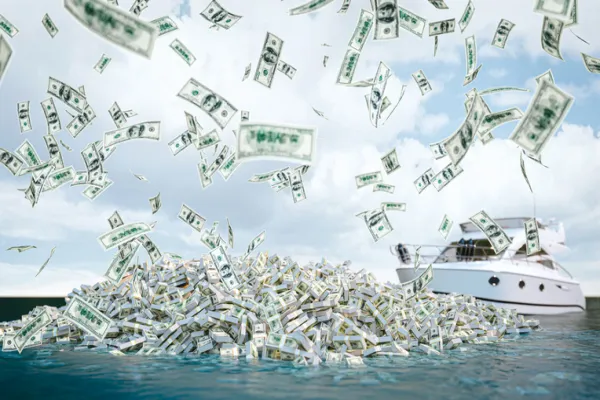T CAME AS NO SURPRISE THAT THE crisis in the U.S. subprime mortgage market posed the first serious policy challenge to Federal Reserve Board chairman Ben Bernanke. What was less expected was the dilemma the crisis created for Europe's central bankers.
Liquidity dried up in the European money market after Germany's IKB Deutsche Industriebank required a E3.5 billion ($4.8 billion) government-organized bailout in July, because of subprime losses, and BNP Paribas froze the assets of two hedge funds in early August, owing to their U.S. exposure. The European Central Bank responded decisively, making an unscheduled E95 billion injection of funds into the money market on August 9 -- a move that was followed, on a smaller scale, by the Fed's later that day -- and continuing to intervene actively in subsequent weeks. The move helped steady the market and bring down a spike in money market rates.
The ECB's prompt response burnished the reputation of its president, Jean-Claude Trichet. "At the start people were surprised by the scale of the ECB's intervention," says Julian Callow, chief European economist at Barclays Capital in London. "Now people recognize that Trichet has shown an acute awareness of the issues at stake."
Trichet continues to play a leading role in trying to strengthen the international financial system in the wake of the crisis. In an interview with Institutional Investor in his Frankfurt office last month, Trichet called on financial institutions and investors to fortify their risk-management procedures and increase transparency on leveraged exposures and portfolio valuations. Such measures -- recommended earlier this year by the Financial Stability Forum of senior officials and regulators from the major industrial countries -- would reassure market participants, he said, and avert the need for new regulation.
"What we are discovering is that for markets not to dry up, a sufficient level of transparency is absolutely required," Trichet says.
The central banker was blunt, however, in his criticism of the opaque structured products that contributed to the market crisis. "I have always been against imposing ex ante limitations on the creativity of market participants," he explains. "But in my view, instruments and structures that cannot be fully understood, even by those who bear the ultimate responsibility of the risk taken by financial institutions, should not be acquired or set up by institutions and investors lacking sufficient sophistication in the management of risk."
Trichet's decisiveness stood in stark contrast to the stance taken by Bank of England governor Mervyn King, who initially declined to intervene despite a liquidity-squeeze-induced rise in rates. He argued in a September 12 letter to the chairman of the House of Commons Treasury select committee that to do so would "encourage excessive risk-taking and sow the seeds of future financial crises." Two days later the bank did an about-face and provided emergency funding to Northern Rock under an agreement with the Treasury and the Financial Services Authority. Then, after the intervention spooked depositors and triggered a run on Northern Rock, the central bank provided £4.4 billion ($9 billion) of liquidity to the money market.
The bank's handling of the crisis had "a whiff of incompetence about it," says Danny Gabay, an economist at Fathom Financial Consulting who previously worked as a Bank of England economist under King. He contends that British regulators need to improve their crisis cooperation procedures.
There was little appetite for action, however, when European Union finance ministers and central bank governors discussed the market crisis at a meeting in Porto, Portugal, last month. Alistair Darling, the U.K.'s chancellor of the Exchequer, warned against any rush to legislate like the U.S. did in passing the Sarbanes-Oxley Act after Enron Corp.'s collapse. All of which leaves Trichet's recipe of transparency and self-regulation as Europe's best response to the market crisis.





